Have you tried any Hunter Valley organic wine? Macquariedale Organic Wines was the first winery in the area to be granted organic/biodynamic certification, so I went up to Hunter for the day with my parents and hubby in tow to learn more about their practices and philosophies.
Organic wines are on the up with more consumers looking to make the switch for themselves and for the environment. But long before organic wines became “trendy” (urgh, I sound like a Dad) Ross McDonald, owner of Macquariedale Wines with his wife Derice, was pushing for organic viticulture practices in the area.
Ross kindly offered to show us around, walk us through the wines and his philosophies when it comes to growing and making wine.
Quickly before we get into it, let’s recap organic and biodynamic (read more detail on the differences):
Organic – no synthetic or artificial chemical fertilisers, pesticides, fungicides or herbicides used on the crops in the vineyard.
Biodynamic – takes organic farming and adds Rudolph Steiner’s theories around the lunar cycle and a planting calendar based on astrology. This looks at the vineyard as a whole ecosystem.
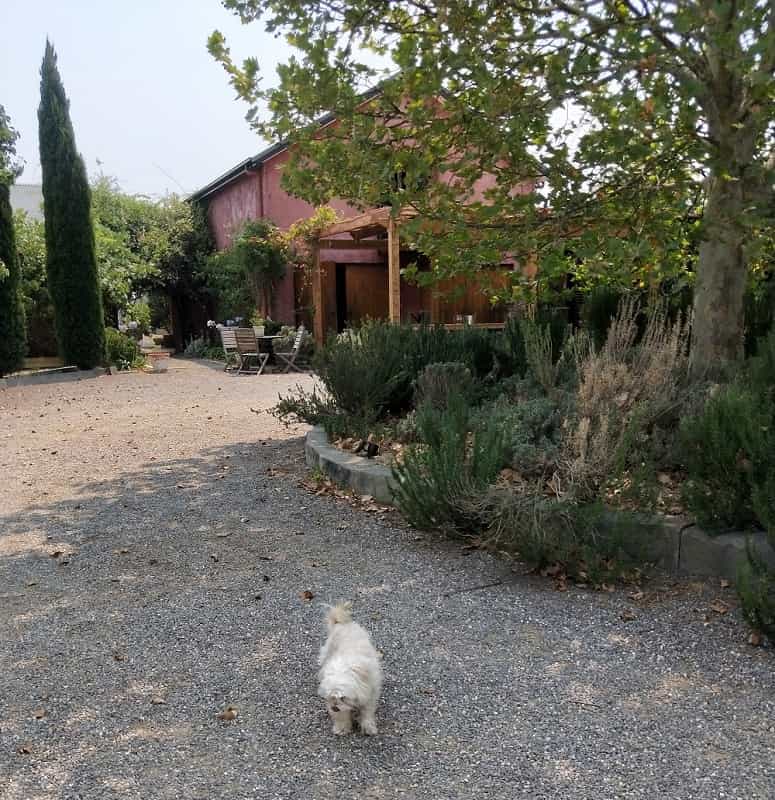
Hunter Valley Organic Wine: The History and Region
Up on the hill in Rothbury is Macquariedale’s cellar door and the owners home. A stunning, dusty-red Italian style casa with tall trees lining the entrance and a very friendly dog, Molly, eagerly waiting to welcome us in (my love for winery dogs continues to grow).
Ross and Derice have been on this block for 21 years now and unfortunately have seen it become drier and drier every year, with drought currently being a major problem for wineries in the area. At the moment they use water from the river (if it is flowing) and this year have seen only 25% of their annual expected rainfall.
Prior to their Rothbury property, Ross and Derice had a different block of land that was 40 years old, however the earth was damaged beyond repair with the area having been battered with chemicals and so, despite wanting to go organic, it wasn’t possible with this land and they had to start again.
After moving to Rothbury, they successfully started the ball rolling, making it the first certified organic winery in the Hunter and in addition to their block, Ross also leases out other organic plots in the area. An organic leader in the area!
Not only are the wines organic, Ross is also inputting biodynamic practices and keeps on top of changes with a group in the area called the Hunter Valley Biodynamic group. The group mostly consists of farms, however the team conduct field visits to each others farms and Ross works to learn to bring biodynamic methods in to viticulture. Pretty cool, right?
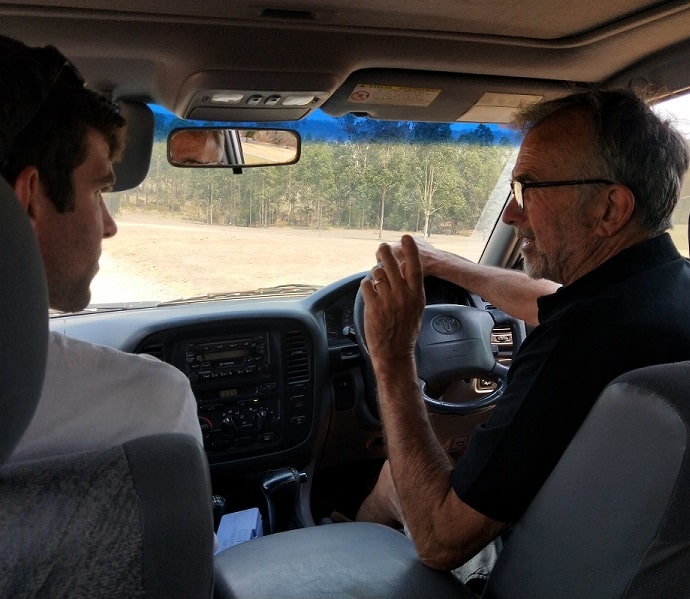
The Vineyard
OK so before trying the wines, we hopped in Ross’ ute for a quick tour of the vineyard (it’s about 35 degrees at this point so we didn’t cover off all the grapes and the ute aircon is opening windows and blasting across fields but still, how good??).
We ride over the ground which soil comprises of red loam, shale and limestone with a bit of clay on top. Good stuff for draining!
First we saw the Pinot Noir – yep, they grow it in the hot, hot Hunter and Ross describes himself as “one of the crazy ones growing it” in the area. But it’s been growing since 2010, they pick early and as it’s organic, he expects it will last 100+ years with only a small drop in fruit.
Of the 15 hectares, 1 of those is the Pinot and so with only 4 tonnes off the block, the price point for the Pinot is pretty high at just under $50 a bottle (Ross only had one bottle left which my Dad gratefully purchased!).
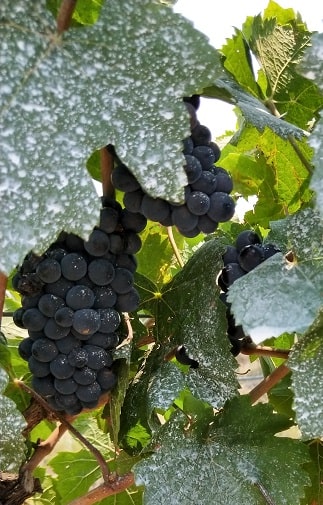
So what DON’T they spray on the crops if they are organic?
- Synthetic fertilisers
- Toxic sprays
- Artificial pesticides
What DO they use?
- Compost to fertilise
- Preparation 500 – where biodynamic farmers hollow out animal horns, fill them with manure and bury them for six months in winter. After the six months, the 500 is then diluted and used in sprays or compost on the rest of the vineyard for optimum soil and growing conditions.
- Kaolin clay – essentially an organic sunscreen for the fruit and plants. It reflects the sun and protects the leaves from burning up under those intense, Ozzie rays. This is the first year they have tried this and it appears to have been effective.
In addition to the above, Macquariedale use a drip irrigation overnight to keep ahead of the 40 degree days and make sure the vines get the water they need.
OK, starting to melt, so let’s get out of the heat (and back to Molly haha).
The Wines
Macquariedale cellar door is in the front of the building, underneath the main part of the house in a nice cool room, fans blasting.
We take a seat and begin the tasting with the white wines:
- Marty’s Verdelho – fragrant and fruity!
- Chardonnay Unwooded (unoaked) – loved this one, light and citrusy
- Chardonnay (oaked) – got that toasty vibe which I’m getting more on board with
We then test out the rosé and my kind of cloudy, natural looking wine:
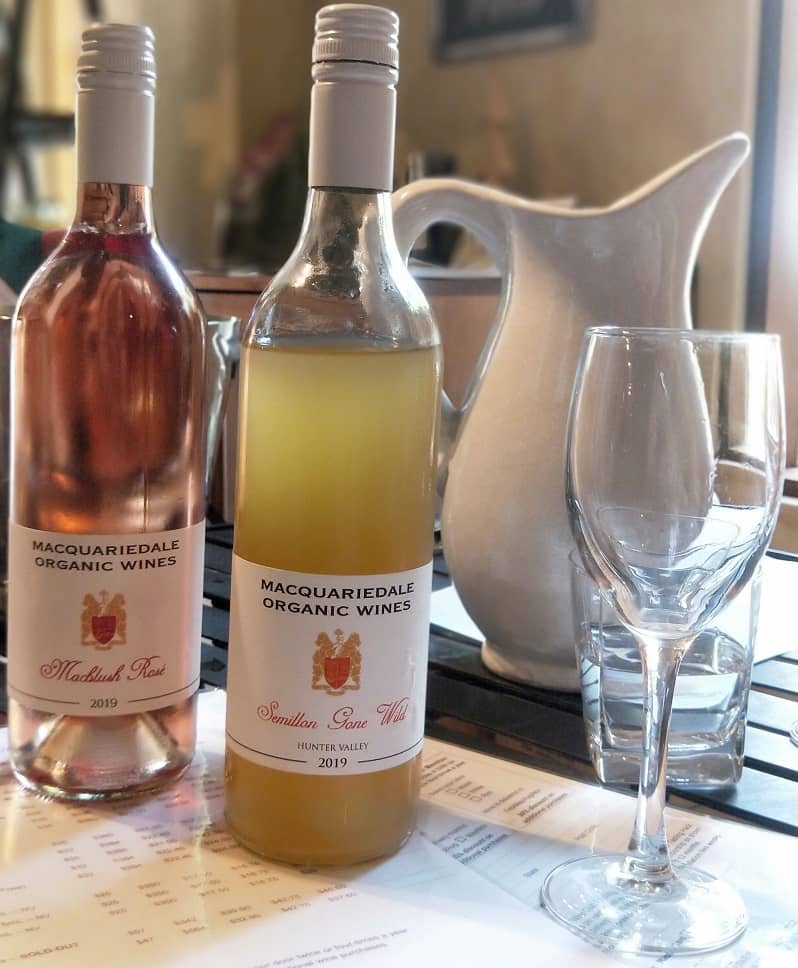
- MacBlush Rosé – Provence style but with a bit of weight thanks to those cab sav grapes
- Semillon Gone Wild – Me: ooh cloudy wine Dad: triggered. Ross’ son made this number and it pretty much encapsulates mine and Dad’s ongoing debate about natural and traditional wine (he maintains this is not wine, I obviously bought a bottle).
Last but not least, the glorious reds:
- Thomas Shiraz – lovely, oaky, vanilla flavours
- Matthew Merlot – purply, juicy goodness. The merlot is on Shiraz rootstock and Ross describes as the “best in the hunter”. They have about 10 tonnes of it and Merlot is the most expensive table wine in the world, mirroring Petrus in France.
- NBG – Nothing But Grapes or Naturally Bloody Good, preservative free Shiraz and Merlot. No filtering or fining (red wines are easier to get clear as most stuff sinks to the bottom!)
After that tasting we left with basically a box of wine in hand haha – couldn’t resist topping up the cellar!
And that rounds up our day at Macquariedale! It’s so good to see how Ross & Derice and Thomas are working to do the best for the land and the wines. They are doing great work to put Hunter Valley organic wine on the map and it really shows in the line up we tasted.

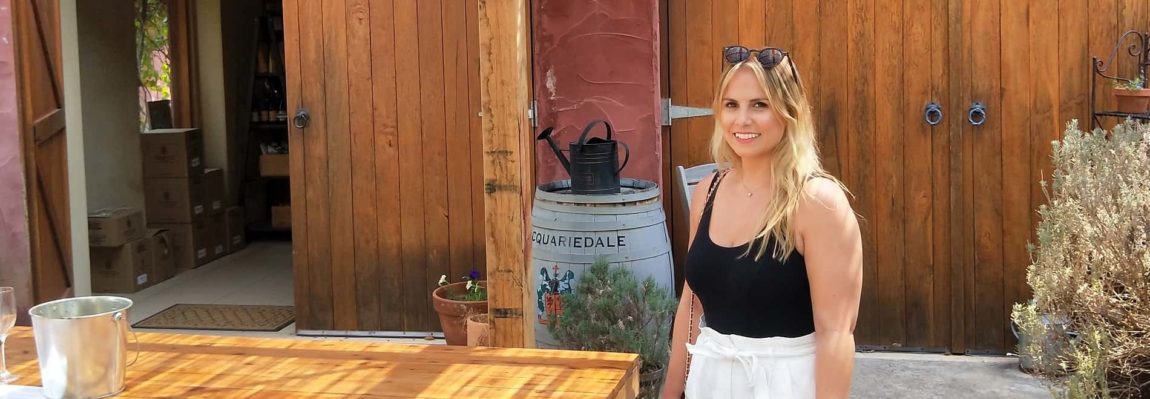
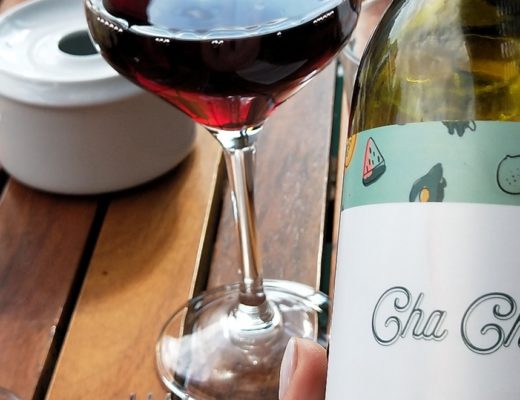
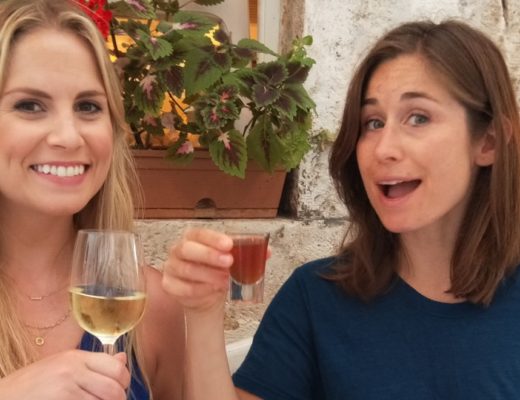
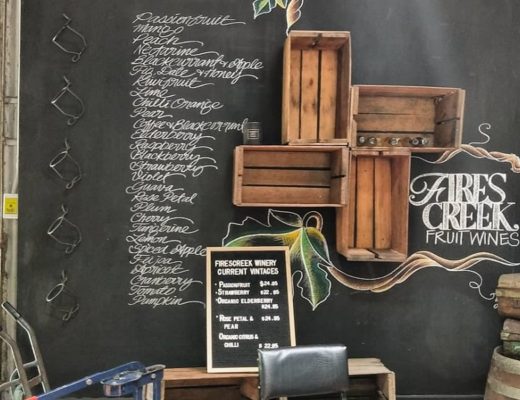
No Comments